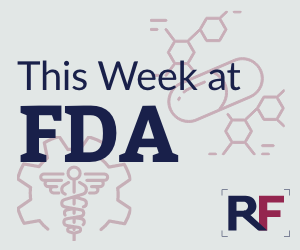This Week at FDA: PDUFA and BsUFA hires, cannabis guidance, and more
 BiotechnologyMedical DevicesNorth AmericaPharmaceuticalsProduct LifecycleRegulatory Intelligence/Policy
BiotechnologyMedical DevicesNorth AmericaPharmaceuticalsProduct LifecycleRegulatory Intelligence/Policy BiotechnologyMedical DevicesNorth AmericaPharmaceuticalsProduct LifecycleRegulatory Intelligence/Policy
BiotechnologyMedical DevicesNorth AmericaPharmaceuticalsProduct LifecycleRegulatory Intelligence/Policy